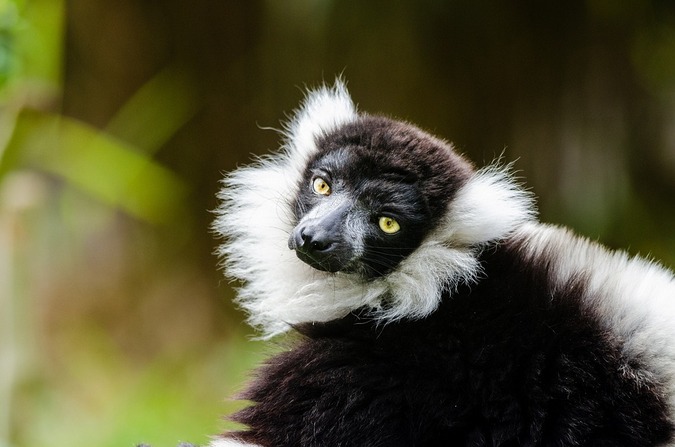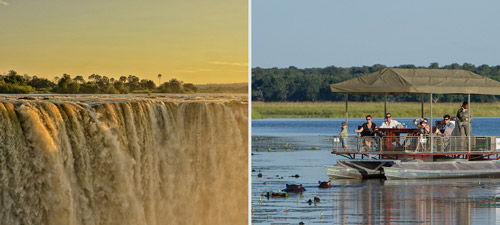
The majority of primate species, including chimpanzees, gorillas and lemurs, are on the brink of extinction, according to a new study.
Two-thirds of all primate species are found in just four countries – Madagascar, Democratic Republic of Congo (DR Congo), Brazil and Indonesia. Of that, 60% of these primates are Threatened, Endangered, or Critically Endangered according to the IUCN. Researchers have now found that without a concerted global effort, these primate populations will be pushed to breaking point by the end of the century.
An international group of primate researchers analysed and evaluated the situation of many endangered primate species. Using information from World Bank and United Nations databases, the group, led by scientists at Oxford Brookes University, explored likely future scenarios in the four primate-rich nations.
As part of their research, they investigated how human activities would influence the wild primate populations in the future, in terms of habitat destruction, land expansion for agriculture, hunting and the bushmeat trade.
A simulation of agricultural land expansion by the end of the century showed a decline of up to 78% in the distribution areas of many primate species. Assuming a worst-case scenario, by the year 2100, 78% of the primate habitats in Brazil, 72% in Indonesia, 62% in Madagascar and 32% in DR Congo could have disappeared.
“Many iconic species will be lost unless these countries, international organisations, consumer nations and global citizens take immediate action to protect primate populations and their habitats,” said Professor Anna Nekaris, a primate conservation expert at Oxford Brookes University.
“People do not realise that in their daily lives, by consuming less and making more ecologically friendly consumer choices, such as reducing use of single-use plastic and eating food grown locally, they can have direct impacts on tropical forests and the long-term sustainability of biodiversity.”

The study – published in the journal PeerJ – claimed that the biggest threat to primate populations is the expansion of farming, as forests are felled to make way for palm oil and sugarcane productions. In addition, illegal hunting and the bushmeat trade are also major threats, and in DR Congo, hunting has significantly reduced the numbers of gorillas and bonobos.
Unfortunately, many of the areas where primates thrive are also characterised by high levels of poverty, lack of education, political instability and food insecurity – factors that often drive overexploitation of primate-rich habitats.
The research team found that only relatively small fractions of primate habitats in the four target nations are located inside national parks and reserves, meaning many populations are left unprotected.
“More protected areas are needed together with corridors along latitudinal and altitudinal gradients to reduce isolation, along with forest restoration projects that can be beneficial to people’s livelihoods,” said Dr Susan Cheyne, one of the report’s co-authors.
The researchers warned that everyone from national lawmakers to the general public has a role to play in preventing a mass extinction. They asked for immediate measures to protect the endangered primate species and supply recommendations for the long-term conservation of primates and to avert primate extinction.
Full report: PeerJ, Estrada A, Garber PA, Mittermeier RA, Wich S, Gouveia S, Dobrovolski R, Nekaris KAI, Nijman V, Rylands AB, Maisels F, Williamson EA, Bicca-Marques J, Fuentes A, Jerusalinsky L, Johnson S, Rodrigues de Melo F, Oliveira L, Schwitzer C, Roos C, Cheyne SM, Martins Kierulff MC, Raharivololona B, Talebi M, Ratsimbazafy J, Supriatna J, Boonratana R, Wedana M, Setiawan A. (2018): Primates in peril: the significance of Brazil, Madagascar, Indonesia and the Democratic Republic of the Congo for global primate conservation

To comment on this story: Login (or sign up) to our app here - it's a troll-free safe place 🙂.![]()
HOW TO GET THE MOST OUT OF AFRICA GEOGRAPHIC:
- Travel with us. Travel in Africa is about knowing when and where to go, and with whom. A few weeks too early / late and a few kilometres off course and you could miss the greatest show on Earth. And wouldn’t that be a pity? Browse our ready-made packages or answer a few questions to start planning your dream safari.
- Subscribe to our FREE newsletter / download our FREE app to enjoy the following benefits.
- Plan your safaris in remote parks protected by African Parks via our sister company https://ukuri.travel/ - safari camps for responsible travellers






